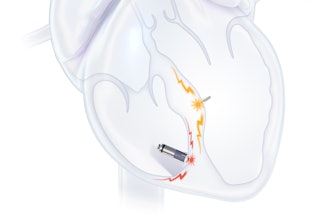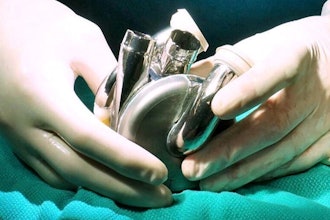
Renata Medical said the FDA has approved the company’s Minima Growth Stent that’s specifically tailored for neonates, infants, and young children, but also designed to be re-expanded over the course of their growth period. This approval marks an advancement in the care of young children facing congenital heart defects, something pediatric cardiologists around the world have been requesting from the medical device industry for over 30 years.
The FDA approved the Minima Stent for treating vessel narrowing – or stenosis – in the aorta or pulmonary arteries. The aorta is responsible for pumping oxygen-rich blood from the heart to the entire body, while the pulmonary arteries pump oxygen-poor blood from the heart to the lungs. A narrowing in either of these arteries may occur naturally or following a surgical intervention. These narrowings can force the heart to work harder. When left untreated, a stenotic aorta or pulmonary artery can lead to heart failure and ultimately, death. For young patients presenting with aortic or pulmonary stenosis, the Minima Stent represents a minimally invasive solution that is designed to be expanded over the course of the child’s life.
Like most interventional procedures, Minima is delivered through the vein or artery in the groin or neck with a small needle. One of the biggest challenges faced by pediatric interventional cardiologists is gaining access to these very small veins and arteries, which can be smaller than a standard straw. Minima's unique design with long, thin frames – or struts – allow it to be crimped down to < 2mm. This proprietary design also helps the stent expand to larger sizes while maintaining enough force to keep the narrowed vessel open. As a result, the majority of patients who receive Minima only need one day in the hospital before they can return home, and when their stent needs expanding, they may go home the same day.
As part of the approval process, the FDA reviewed findings from the GROWTH Pivotal trial, a prospective, multi-center, non-randomized clinical study to evaluate the safety and effectiveness of the Minima Stent in neonates, infants, and young children. In the study, 97.6% of patients with the Minima Stent had effective stenosis relief, and 100% were free from additional surgical intervention at 6 months following implantation. The study also demonstrated a highly favorable safety profile, with 100% of patients being free of major device-related adverse events through 6 months.
The Minima Stent System uses foundational Growth Technology designed to provide long-term solutions, and Renata Medical plans to leverage this core technology in their pipeline of innovation. Eason Abbott, Co-Founder and Chief Operating Officer, said, “We built the Minima Stent in collaboration with key opinion leaders to provide another option for patients with congenital heart disease. Together, we hope the stent is the first of many devices that improve the outcomes of our smallest patients.”
As of today, the Minima Stent System is commercially available in the U.S.






















